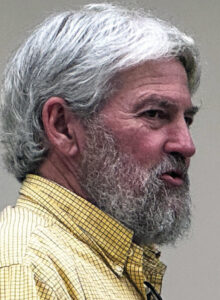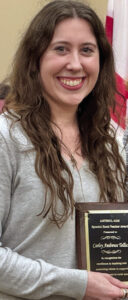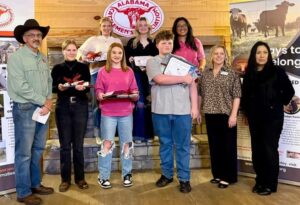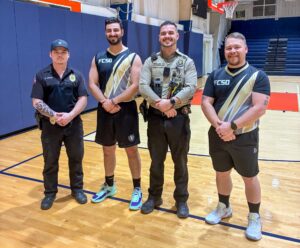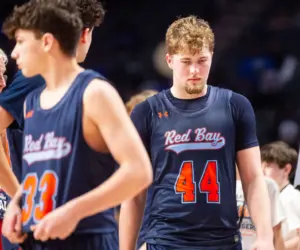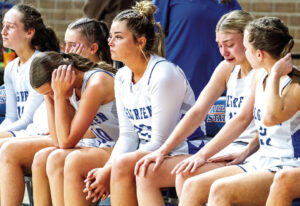Local man identifies Keller playmate, cook
By Staff
Jonathan Willis
There is a place in Tuscumbia's Oakwood Cemetery that history has tried to forget.
Some graves are left with no markers, while others have been propped back into place following years of neglect and decay.
But each headstone on a grave, and those with no markers at all for that matter, have their own special story to tell.
For one Russellville man, it's a story that began more than 120 years ago in a house that is renowned in northwest Alabama and the birthplace of one of America's best-known citizens.
Tom McKnight moved to Russellville four years ago looking for answers into his family's past. What he learned was much more than he expected.
"I learned my great-grandmother was the cook at Ivy Green when Helen Keller was a child," said McKnight, who has traveled the world as a management consultant in the humanitarian sector for the United Nations, most recently serving six months in the African nation of Ghana.
McKnight took a break from service from the U.N. following his mother's death in 2004. In honor of his mother, McKnight left his native New York to learn about his family's past in northwest Alabama.
"My mother always wondered what happened to the family so I came here trying to connect the dots," he said. "In May 2005, armed only with a couple of family stories, an address and a GPS, I settled in Russellville to find family that I never knew existed."
An 86-day, 14,496-mile journey took him across the country in search of his family's roots.
McKnight found information about his great-grandfather, the Rev. Fred W. Watkins, a Baptist pastor in Colbert County, but he knew little of his great-grandmother, Sophia Napier Watkins.
He quickly dove into archives and old newspaper clippings throughout northwest Alabama to learn more.
After finding an article in "The American Star," which was an old newspaper for Baptist churches, he began to seek help from researchers in the area.
He learned that his great-grandmother was born July 20, 1854, and died Aug. 24, 1917. McKnight believes his great-grandfather is buried in the unmarked grave beside her in Tuscumbia's Oakwood Cemetery.
McKnight believes Sophia Watkins had a headstone placed on her grave due to her relationship with Viney Murphy, who is depicted in plays and literature about Keller's life. Murphy worked at the Keller home, Ivy Green, as a nursemaid to Keller's siblings.
McKnight believes it's Watkins' relationship with Murphy that led to a marker being placed on her burial site.
"Viney was an officer in the African-American fraternal organization known as the Mosaic Templars of America," McKnight said. "As a result of great-grandmother's relationship with her I don't believe she would have allowed her to be buried without a headstone."
Sophia Watkins has a Mosaic Templars marker on her gravesite.
During a recent trip back to New York, McKnight found another startling revelation based on Keller's handwritten letters to her mother.
In the classic story of Keller's life and the plays based on that book, Keller's childhood playmate is known as Martha Washington.
However, McKnight has learned that Washington was really Mariah Watkins, the daughter of his great-uncle Rush Watkins.
"Research has verified the origin of 'Martha Washington' as a fictitious identity and whose name was given by Ms. Keller because she couldn't remember her name years later," McKnight said.
McKnight said that "Washington" is referred to in Keller's book as being the daughter of the cook. But, based on his research, McKnight said "Washington" was really his great-grandmother's niece.
"This is a historic fact that has been conveyed over the decades and should be rectified," he said. "This is the heart of genealogy and history – making sure that our pasts are factually accurate. This is the beauty of research. It is an opportunity to set the record straight."
McKnight's "spiritual journey" to northwest Alabama, as he refers to it, led him on an altogether mission. He worked with a group of area archaeologists to exhume and move 227 bodies from a Lawrence County cemetery that was in danger of being lost to developers. In the process of re-locating the old Foster Cemetery near Town Creek, McKnight and other volunteers were able to properly identify more than 70 people whose names had been lost.
"The greatest threat to our national security is losing our past," he said. "We must honor and remember those who have gone on before us."


